“It showed me that EU values can be taught in ways that are fun, accessible, and meaningful for vocational students.”
At the begining of September, educators from six European countries gathered for our first EUCLASS Summer School in Athens. Hosted by AKMI, this three-day programme brought together 23 VET professionals eager to explore how EU values can be meaningfully integrated into vocational classrooms.
The Summer School combined structured training with interactive sessions, designed and facilitated by experienced trainers Elie Demerseman and Lilika Trikalinou.
- Day 1 – Laying the foundations: After warm icebreakers, participants joined a roundtable where teachers from Greece, Estonia, and the Netherlands shared their own practices and challenges in teaching EU values. This open exchange set the tone: collaborative, reflective, and deeply connected to real classroom realities. The day continued with an immersive training session that used non-formal methods such as the EU Silent Puzzle and the Moving Debate, encouraging participants to “learn by doing” while reflecting on how playful, experiential learning can tackle complex EU topics.
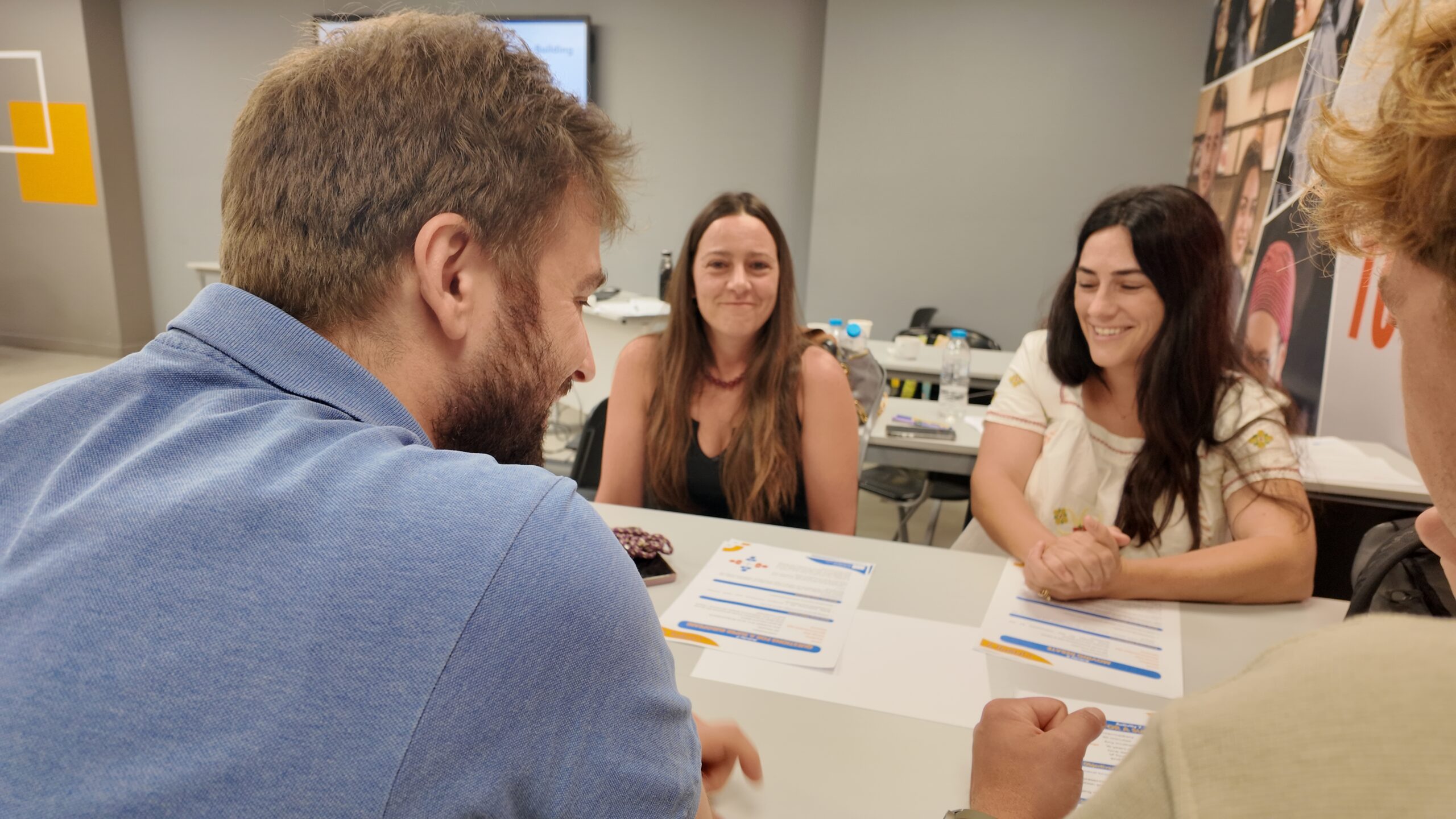
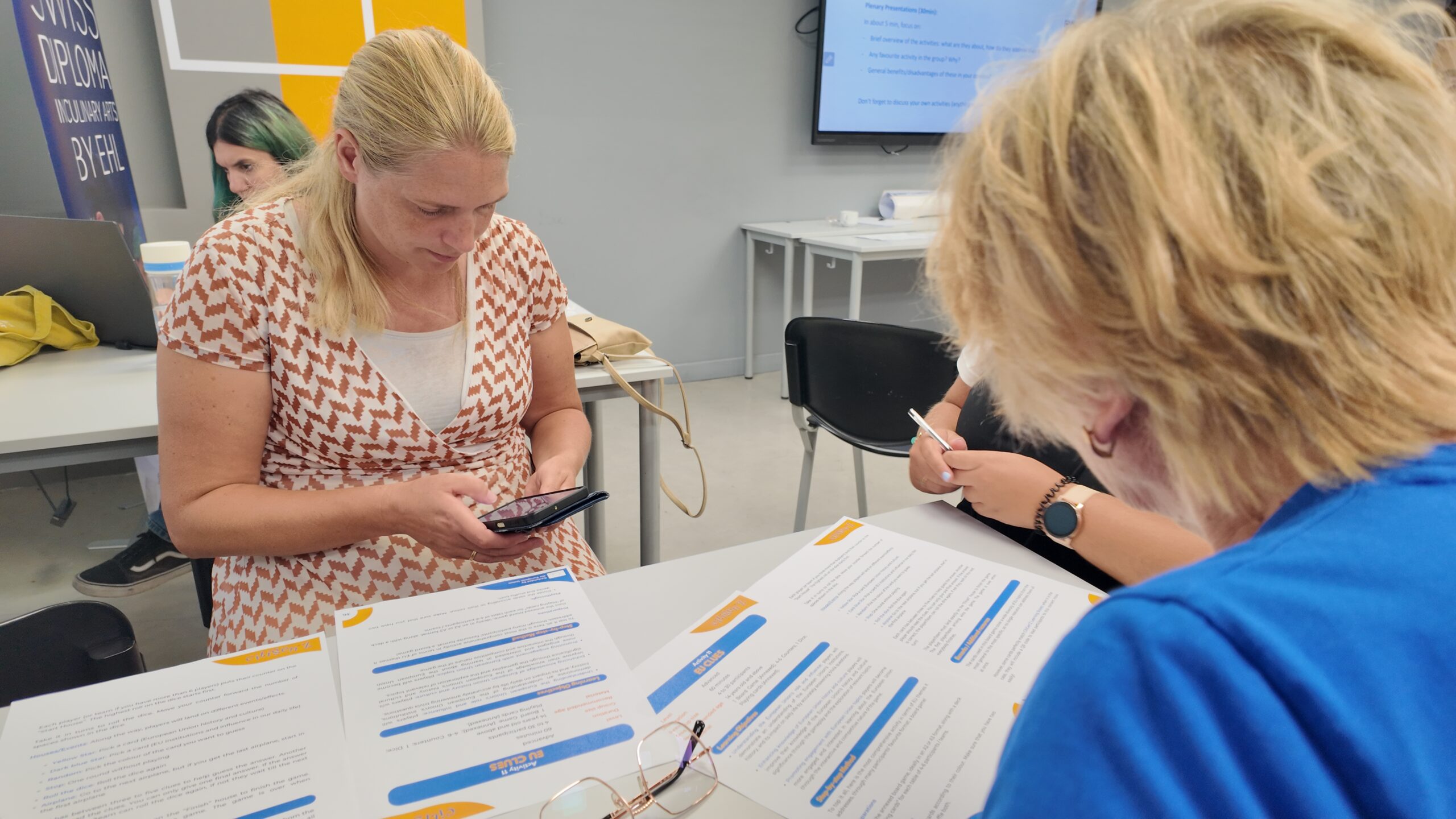
- Day 2 – Building capacity and co-designing: The morning focused on a toolbox of resources, including CitiGen’Z activities and the MEGA platform, giving participants ready-made materials and fresh ideas for their classrooms. In the afternoon, a World Café created space to brainstorm around contextual needs, challenges, and opportunities. Mixed-nationality groups then co-designed tailored lesson plans and strategies to take home, proving that diversity is a strength in pedagogical creativity. The day ended with a cultural visit to the Ancient Agora — a symbolic reminder of Europe’s democratic roots.
- Day 3 – Reflection and next steps: Teachers refined their personal “EU-teaching strategies” and shared them with peers, receiving feedback to strengthen their plans. The programme closed with an evaluation session, ensuring participants left with both concrete outputs and a sense of shared purpose.
The trainers emphasised the importance of this exchange. As Lilika Trikalinou shared during the closing session: “What we created here is not just a training. It is a starting point for a movement to make citizenship education a natural part of vocational learning.”
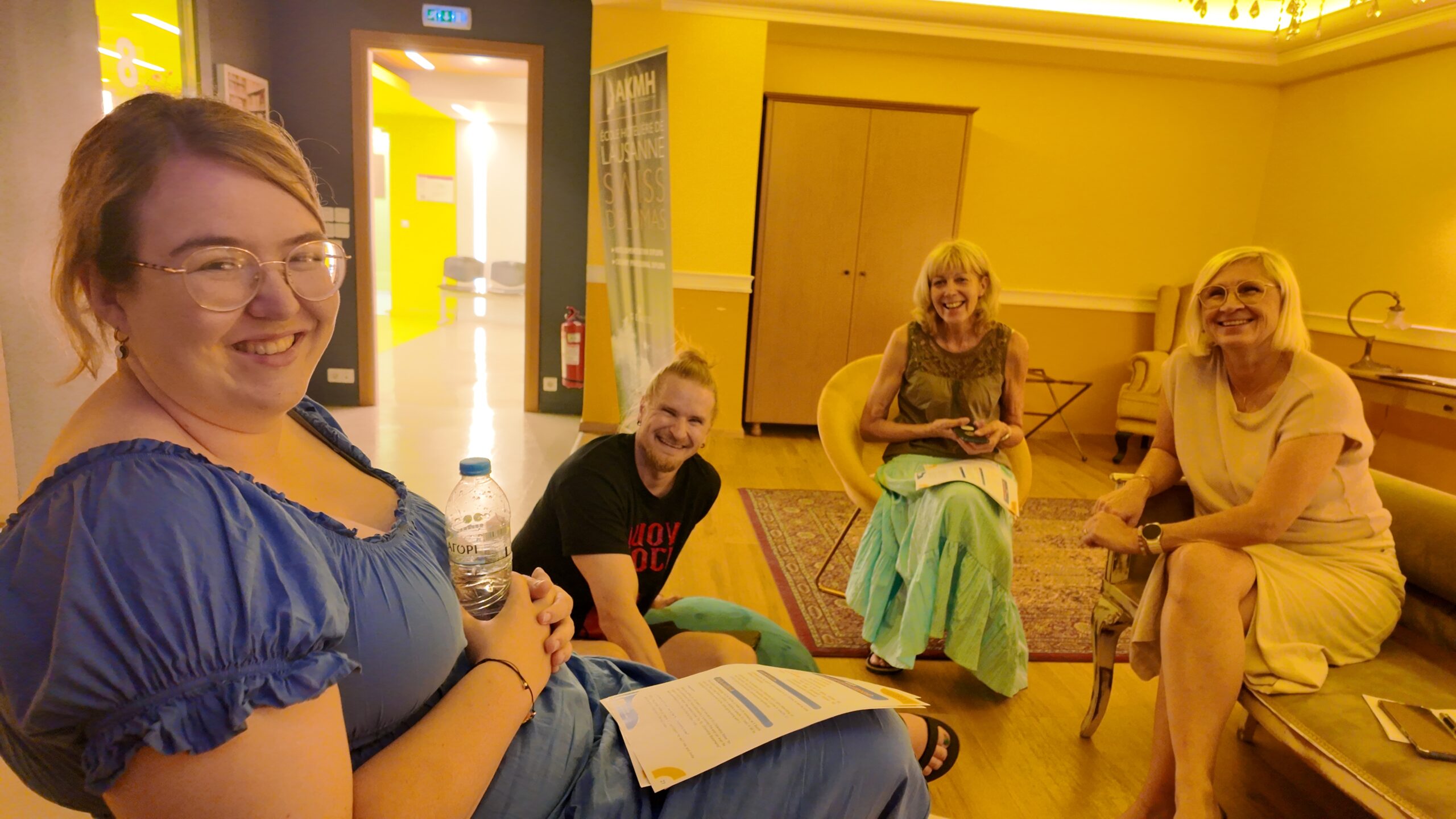
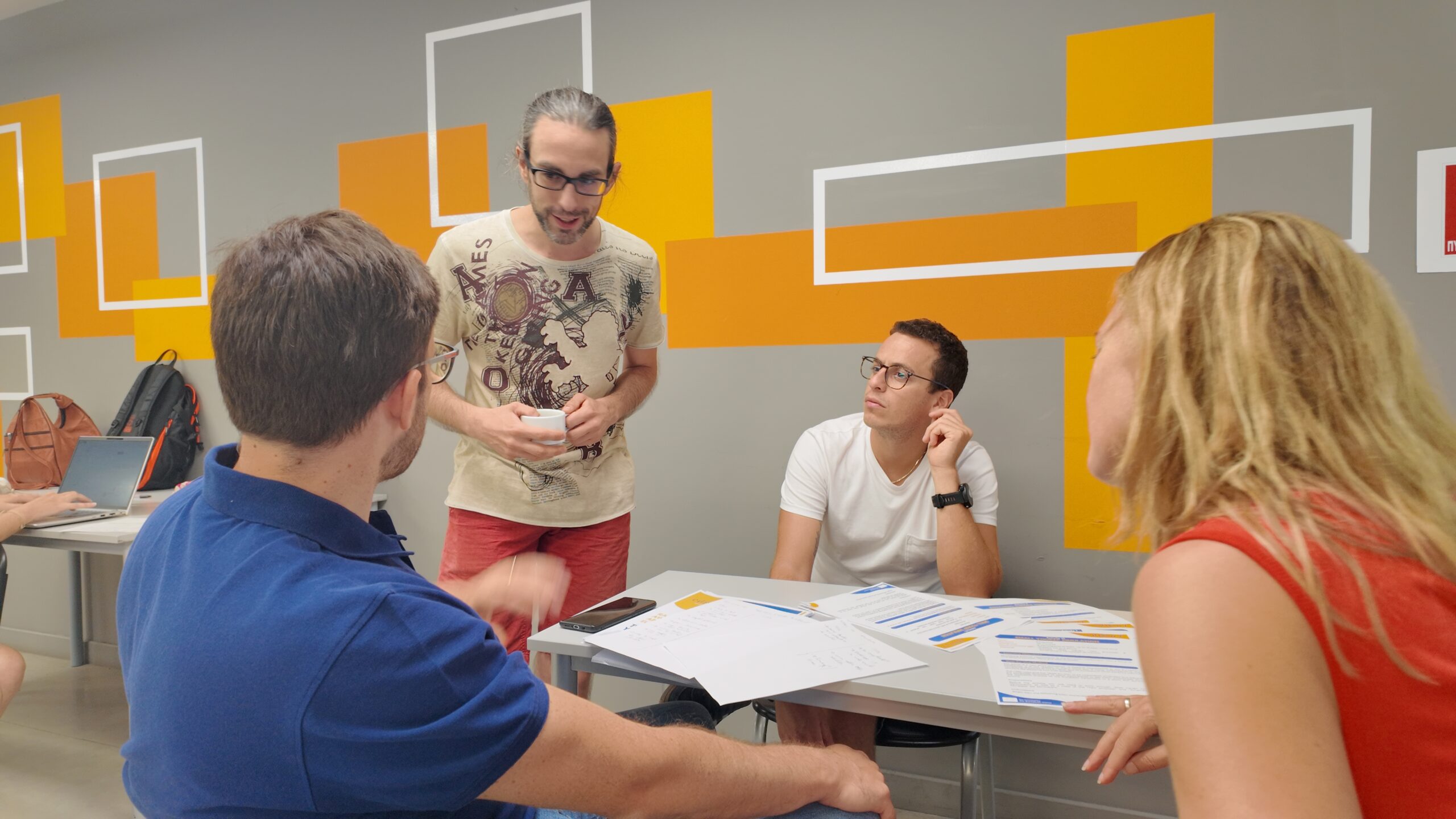
Beyond the classroom sessions, social dinners and informal networking in the heart of Athens reinforced the European spirit of community and connection.
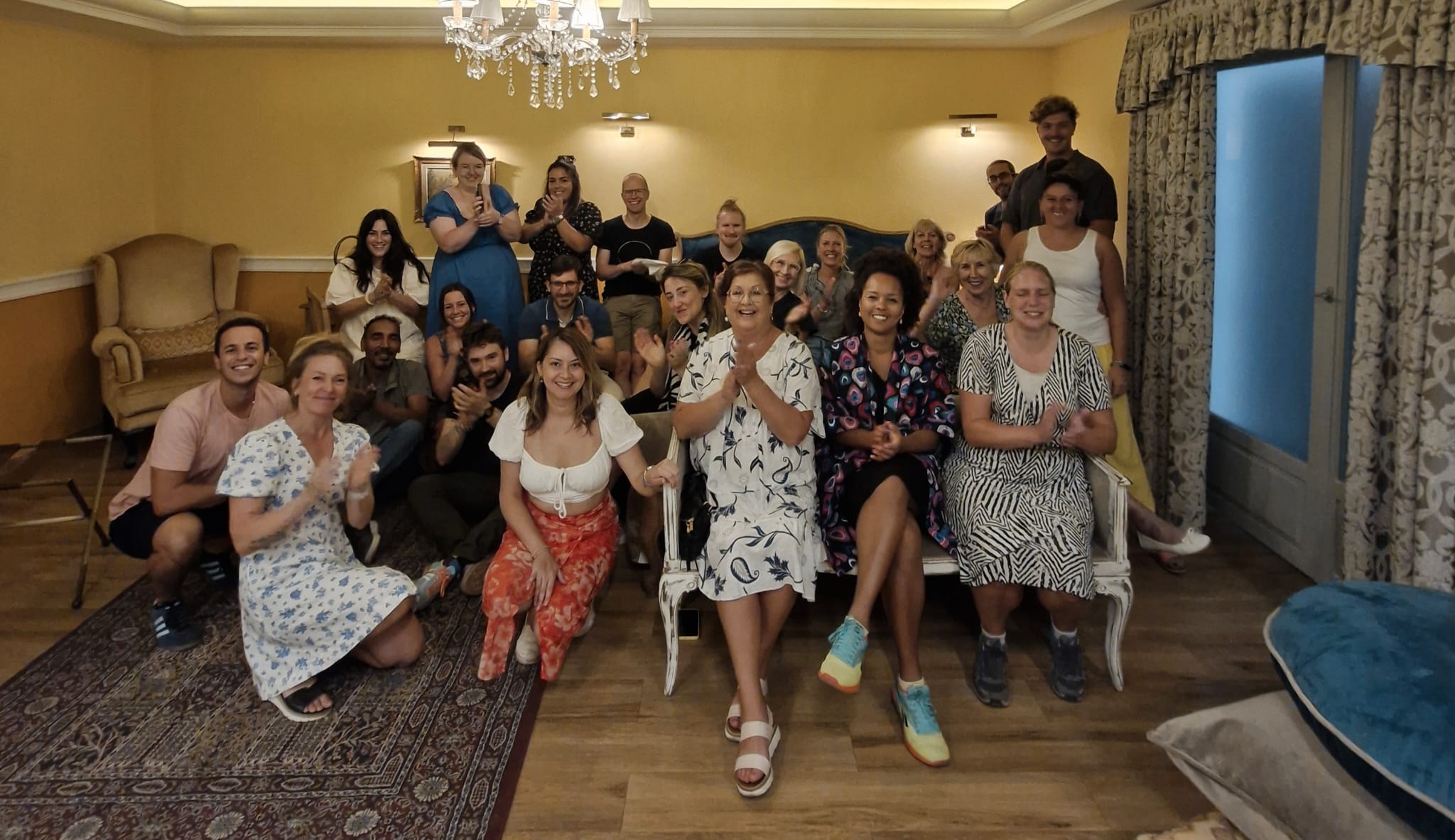
The Summer School achieved far more than its stated objectives. Participants left with:
- Enhanced teaching skills: through practice with non-formal education methods and peer coaching.
- Ready-to-use lesson plans and activities: co-designed to fit VET contexts across different countries.
- A strengthened international network: teachers who plan to stay connected as they test their strategies in the coming months.
- Renewed confidence and motivation: to address EU citizenship in inclusive and engaging ways.
“I gained valuable insights into the education systems of other countries and built meaningful connections with fellow VET colleagues across Europe. It was eye-opening to learn how other teachers address challenges such as extremist thinking in their classrooms. Even as experienced educators, I found the EU task toolbox to be a practical source of fresh ideas for spreading knowledge more effectively.”
The evaluation confirmed these impressions: overall satisfaction was very high, with participants valuing the mix of hands-on activities, collaborative work, and cultural immersion.
A powerful reminder of how cross-border collaboration can enrich teaching and empower educators. It demonstrates that vocational training is not only about professional skills, but also about preparing young people to be engaged citizens.

Pingback: Pilot phase at Kuressaare Ametikool – euclass